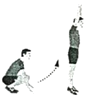0 135560 135568 135574 135578 135584 135586 135590 135596 135598 135604 135610 135614 135616 135620 135626 135628 135634 135638 135640 135644 135646 135650 135652 135654 135655 135656 135658 135659 135660 135662 135664 135668 135670 135674 135676 135680 135686 135688 135694 135698 135700 135704 135710 135716 135718 135724 135728 135730 135736 135740 135746 135754 159627
 B.
B. C.
C. D.
D.